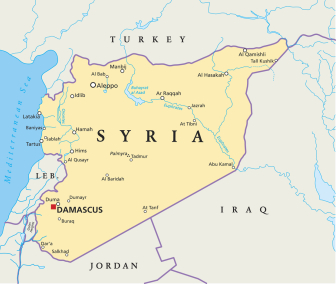
When it comes to bearing the brunt of the climate crisis, there is a disparity between the UK and communities in the global south. Often those on the frontline who are dealing with the impacts – damage or loss to their homes, livelihoods, and health – have done little to cause this global crisis.
But all too often the disproportionate impact on women and girls is forgotten. We cannot make that mistake this international women's day, Christian Aid says.
The lived experiences of women across the global South, gathered in Christian Aid's report Women on the Front Line: Healing the earth, seeking justice, should act as a constant reminder that climate change is affecting women and girls more than men.
In Kenya, Sadia Isacko is an activist who encourages women's groups in Marsabit to attend public forums to discuss the issues affecting them. She explains that Marsabit County was not always like this; yes, it was dry, but not this bad.
"For women especially, the resources we need have moved further away. Basic resources like water, pasture for our livestock and firewood have diminished further; yet women need these things for their everyday life."
Sadia added: "Every other responsibility is left for women. They don't have access to milk, because the herds are away; they have to take care of children; they have to look for food, as their husbands are hundreds of kilometres away herding livestock."
Pastoralist Community Initiative and Development Assistance (PACIDA) is a Kenyan organisation that focuses on women and young people from different groups. It assists bodies and platforms, including climate change planning committees, through which communities can voice their concerns and lobby for policies, services and support.
Sadia adds: "Whenever women go to public participation forums and present their grievances, they are mainly dominated by men ... But we realised if we persist on the same, they will listen and take action."
The charity's report calls for women's "strengths, knowledge and capabilities" to be at the forefront of the climate response and for a shift in power and resources from the Global North to the Global South.
Fionna Smyth, Head of Global Advocacy and Policy for Christian Aid, explains, "The fight against climate change is inextricably intertwined with poverty and inequality. Transformative policies are required to support women's initiative and leadership."
Christian Aid is also calling for 70 per cent of climate financing to target locally led responses, including ensuring that funding for loss and damage is matched to funding for adaptation and mitigation. As part of a further package of proposals, it is also urging leaders to redirect subsidies for fossil fuels to measures for gender equity and sustainability.
In Honduras, the impacts of climate change and environmental degradation have long been felt by small-scale farmers. Landslides and flash floods have worsened as a result of deforestation and increasingly intense rainstorms; and an overall decrease in rainfall has increased the risk of drought and forest fires, and depleted water supplies.
To address these problems, Organismo Cristiano de Desarrollo Integral de Honduras is working on a Women-Led Sustainable Energy Enterprises (WLSEE) initiative, supported by the European Union. This has helped 120 women set up 39 enterprises to produce, market and install sustainable energy technologies in poor communities with limited energy access. Participants in the WLSEE initiative suggest that while climate change is a problem for everyone, it presents specific challenges for women and poorer households.
Yadira Lemus, a dedicated producer of quality coffee and member of WLSEE IXIK Organic, said: "It affects housewives the most, because we have to keep an eye on water access.
"In some cases, maybe the water does not reach the house, so we are forced to bring it from the closest source.
"The same thing happens with family vegetable gardens, because women are the ones ... producing what we are going to eat. But this is becoming more and more difficult."
Nushrat Chowdhury, Climate Justice Policy Advisor for Christian Aid and co-author of the report, said: "By examining the lived experience of women across the Global South, we know climate changes are disproportionately impacting women and girls.
"Despite being on the frontline of understanding the impacts on the climate emergency, the impact of old colonial and economic systems mean women are rarely consulted or decide policy or practical approaches."
Smyth added: "The latest IPCC report shows that climate damage is even worse than predicted. To save the planet, we need global leadership and a dramatic overhaul of the old structures.
"Bold and transformative policies are required to support women's initiative and leadership and to put them at the heart of a gender just climate response.
"After all, people who are vulnerable to climate change know best what is needed in their specific contexts."







